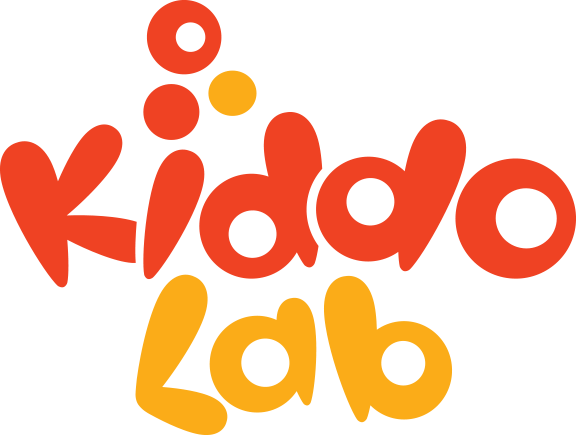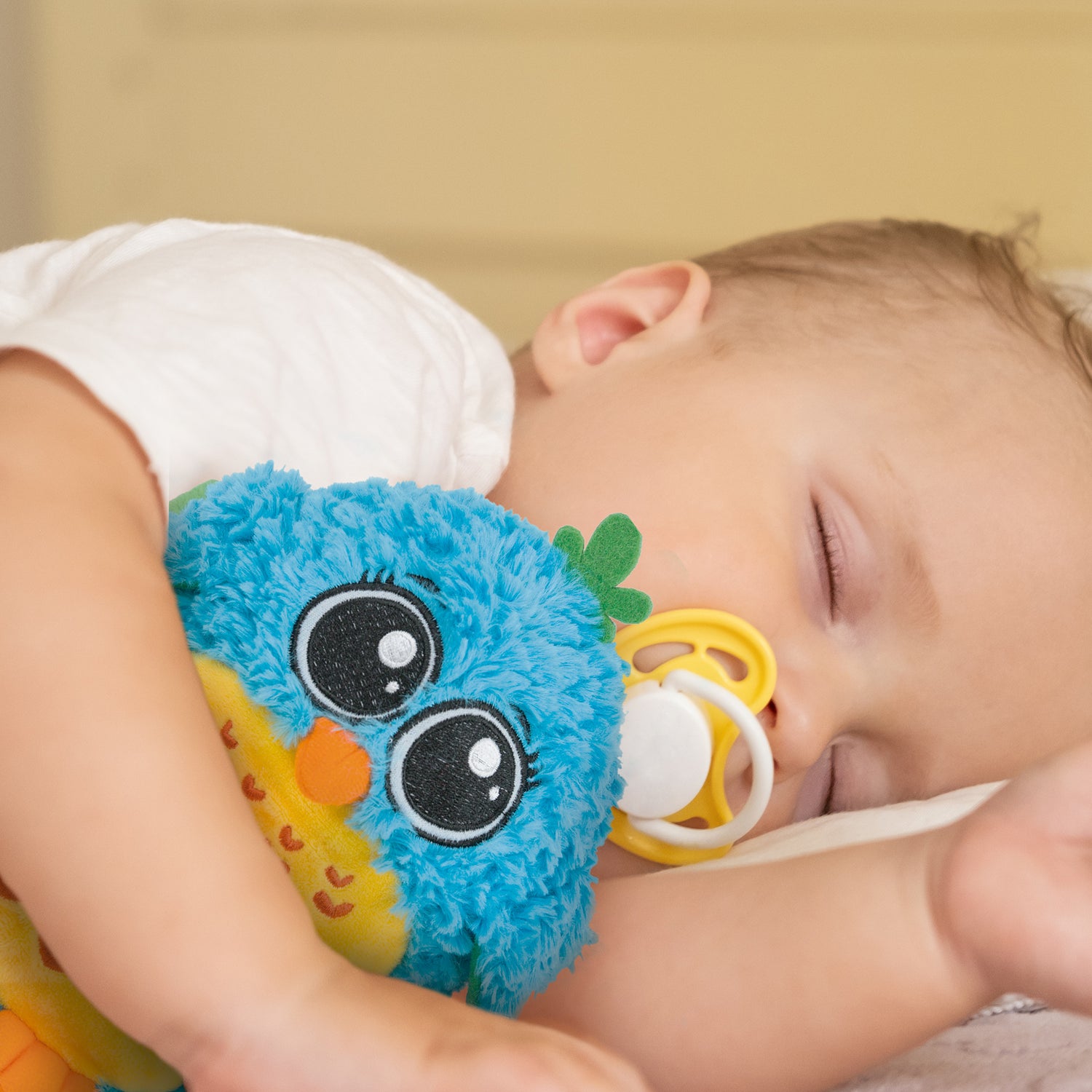The Importance of Teaching Self-Feeding
Introducing self-feeding to your baby is a significant step in their developmental journey. It's not just about eating; it’s about fostering independence, enhancing fine motor skills, and developing a healthy relationship with food.
Why Self-Feeding is Essential:
- Motor Skill Development: Self-feeding improves hand-eye coordination and fine motor skills.
- Sensory Exploration: It allows babies to explore different textures and tastes, which is crucial for sensory development.
Kiddolab’s Role in Fostering Self-Feeding Skills
Kiddolab, a pioneer in educational toys for children, offers an array of products that can support and encourage self-feeding in babies. Their toys are designed to be both fun and functional, aiding in the development of the skills necessary for self-feeding.

Tools That Aid Self-Feeding:
- Interactive Mealtime Toys: Kiddolab interactive toys can make mealtime more engaging, encouraging babies to participate actively in feeding themselves.
- Fine Motor Skill Toys: Toys that enhance fine motor skills indirectly support the development of self-feeding abilities.
Step-by-Step Guide to Self-Feeding
-
Introducing Suitable Utensils: Start with baby-friendly utensils. Kiddolab’s range includes ergonomically designed spoons and forks perfect for little hands.
-
Offering Finger Foods: Begin with easy-to-hold foods. Encourage exploration and play, which Kiddolab toys can complement by making the process more enjoyable.
-
Patience and Encouragement: Be patient and offer constant encouragement. Use Kiddolab toys as positive reinforcement for their efforts.
Encouraging Independence Through Play
Play is a powerful tool in teaching various skills, including self-feeding. Integrating mealtime concepts into play can make the learning process natural and enjoyable.
Fostering Skills Through Play:
- Mealtime Role-Playing: Use Kiddolab toys for role-playing mealtime scenarios, helping babies understand the concept of eating independently.
- Interactive Eating Games: Incorporate games that mimic eating actions, using Kiddolab toys to develop coordination and interest in self-feeding.
Making Mealtime a Positive Experience
A positive and stress-free mealtime atmosphere is crucial for encouraging babies to eat independently. How parents react to spills and messes can greatly impact a child’s willingness to try self-feeding.
Creating a Positive Environment:
- Stay Calm and Encouraging: React positively to messes and spills; they are part of the learning process.
- Enjoyable Mealtime Toys: Introduce Kiddolab mealtime-themed toys to create a fun atmosphere around eating.

The Role of Consistency and Routine
Consistency in mealtime routines helps babies understand what to expect and feel more in control. A structured approach can significantly aid the self-feeding learning process.
Establishing a Routine:
- Regular Meal and Snack Times: Set specific times for meals and snacks with Kiddolab utensils and toys to signify it's time to eat.
- Consistent Setting: Have meals in the same place every time, using Kiddolab products to make the space inviting and familiar.
Encouraging Self-Feeding Through Exploration
Allowing babies to explore foods with their hands and utensils encourages them to try self-feeding. Exploration plays a key role in developing their interest and skills in eating independently.
Fostering Exploration:
- Hands-On Experience: Let babies touch and play with their food, using Kiddolab toys to simulate food textures and shapes.
- Safe Utensil Exploration: Introduce safe Kiddolab utensils for babies to explore and play with, even outside mealtimes.

Using Appropriate Foods and Utensils
Choosing the right foods and utensils can make a significant difference in the success of teaching a baby to eat independently. Safe, easy-to-handle foods and utensils encourage babies to try feeding themselves.
Selecting the Right Tools:
- Baby-Friendly Foods: Offer soft, easy-to-grasp foods that babies can handle without difficulty.
- Kiddolab Utensils: Utilize Kiddolab ergonomically designed utensils that are easy for little hands to hold and maneuver.
Gradual Introduction to Different Foods
Introducing a variety of textures and tastes gradually helps babies adjust to new foods and encourages them to try self-feeding. Variety keeps mealtime interesting and encourages exploration.
Expanding the Palette:
- New Textures and Tastes: Regularly introduce new foods to keep mealtime exciting. Use Kiddolab toys that mimic different food types to familiarize babies with various textures and shapes.
- Mix of Finger Foods and Spoon-Feeding: Balance meals with foods that babies can eat with their hands and those they can try with utensils.
Modeling Healthy Eating Habits
Babies learn by imitating. Eating meals together and showing them how you eat can be a powerful tool in teaching them to eat independently.

Setting an Example:
- Family Mealtime: Share mealtime with your baby, using similar Kiddolab utensils to demonstrate how to use them.
- Positive Eating Behaviors: Show enjoyment in your meals, encouraging a positive attitude towards food.
Encouraging Independence While Ensuring Safety
While it’s important to encourage independence, ensuring safety during mealtime is paramount. This involves constant supervision and using appropriate tools and foods.
Safe Self-Feeding:
- Supervision: Always supervise your baby during meals to ensure safety.
- Safe Utensils and Toys: Use Kiddolab’s child-safe utensils and toys, designed to minimize risks while eating.
Reinforcing Self-Feeding Through Play and Praise
Reinforcement through play and praise can significantly motivate babies in their journey to independent eating. Celebrate their successes and make learning enjoyable.
Positive Reinforcement:
- Praise and Applause: Cheer and applaud when your baby successfully uses a spoon or tries a new food.
- Playful Learning: Incorporate Kiddolab toys in play sessions that mimic mealtime scenarios, reinforcing the skills learned during meals.
Kiddolab’s Educational Toys: Enhancing Mealtime Learning
Kiddolab’s range of educational toys can be a significant asset in teaching your baby to eat independently. These toys are designed to be fun and educational, aligning with the developmental needs of babies learning to self-feed.
Kiddolab’s Role in Self-Feeding:
- Interactive Mealtime Toys: Toys that simulate mealtime scenarios can make learning to eat independently more relatable and enjoyable for babies.
- Skill-Developing Toys: Kiddolab toys that enhance fine motor skills and hand-eye coordination indirectly support the development of self-feeding skills.
Introducing a Variety of Utensils
Using different types of utensils can help babies become adept at self-feeding. Introducing variety adds an element of fun and challenge, encouraging skill development.
Utensil Variety:
- Different Shapes and Sizes: Offer spoons and forks of various sizes and shapes. Kiddolab range includes a variety of baby-friendly utensils to cater to different stages of self-feeding.
- Colorful and Fun Designs: Choose utensils with fun designs and colors, similar to Kiddolab toys, to make them more appealing to babies.
Addressing Challenges with Patience
It’s important to remember that learning to self-feed is a process that comes with its own set of challenges. Patience and understanding from parents are crucial during this learning phase.
Handling Frustrations:
- Stay Calm: Maintain a calm demeanor during mealtime mishaps or when the baby is struggling.
- Encouraging Effort: Focus on the effort rather than the result. Celebrate the attempts, not just the successes.
Involving the Baby in Meal Preparation
Involving babies in meal preparation, as much as is safely possible, can increase their interest in food and self-feeding. It makes mealtime an inclusive and exciting activity.
Participatory Meal Prep:
- Observation: Let your baby watch as you prepare meals. Use Kiddolab kitchen toys to mimic the process in a playful manner.
- Simple Tasks: Involve them in safe, simple tasks like washing fruits or choosing Kiddolab utensils for mealtime.
The Significance of Consistent Encouragement
Consistent encouragement and positive reinforcement play a significant role in motivating babies to continue developing their self-feeding skills.

Continuous Support:
- Regular Praise: Offer words of encouragement and applause for each small step of progress.
- Reward System: Implement a playful reward system using Kiddolab toys to celebrate milestones in self-feeding.
Kiddolab’s Contribution to Independent Eating
Kiddolab’s educational toys are designed to support and enhance the journey of teaching a baby to eat independently. Their products offer both fun and functional value, aligning with the developmental needs of babies learning self-feeding skills.
Kiddolab’s Supportive Role:
- Interactive Eating and Cooking Toys: Kiddolab range includes toys that simulate cooking and eating scenarios, making the process of learning to eat independently more engaging and enjoyable.
- Developmental Toys for Fine Motor Skills: Enhance your baby’s fine motor skills, which are essential for self-feeding, with Kiddolab skill-building toys.
In conclusion, teaching your baby to eat independently is a rewarding journey that requires patience, consistency, and the right tools. Kiddolab’s educational toys provide an excellent complement to this learning process, making self-feeding an enjoyable and successful developmental milestone.
Embark on the Journey with Kiddolab:
Embrace this essential stage of your baby’s growth with Kiddolab, and watch as they develop into confident and independent eaters.
Choose Kiddolab for a playful and effective approach to your baby’s self-feeding journey!


